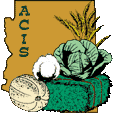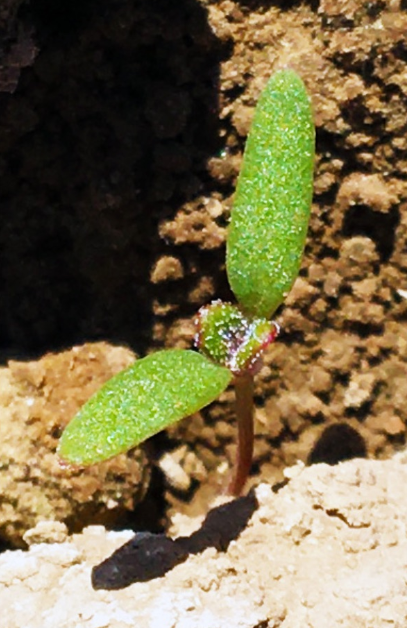
|
|
|
|

|
|||
|
|
|||
|
|
|||
Dacthal was first registered in 1959 but like most older products that are still used, we are constantly adapting it to our changing cultural practices. Dacthal is a mitotic inhibitor and kills germinating weeds by stopping cell division. This is the same mode of action as many other preemergence herbicides such as Trifluralin, Prowl, Balan, Kerb and others but its chemistry and how it moves in the soil and plant are different. Dacthal is absorbed by both shoots and roots of germinating seedlings although most of the activity is from shoot absorption. When absorbed by the shoots, it will move upward into the plant. It is not absorbed by foliage and can be safely applied over the crop. Dacthal has a strong affinity for soil and adsorbs strongly to soil particles. If Dacthal is applied to dry soil, it sometimes will not work because the herbicide it stuck on the soil and not available to kill weeds. Conversely, if the soil is saturated, it may not be adequately incorporated. The best time to apply Dacthal is when the soil is moist but not saturated. When Dacthal was first being developed it was tested for use on lettuce. If it is sprayed on or chemigated it will cause severe injury to lettuce. If it is mechanically incorporated it is surprisingly safe to lettuce. It is fairly broad-spectrum bur weak on mustards. |
|||
| Back | |||
|
For questions or comments on any of the topics please contact Marco Pena at the Yuma Agricultural Center.
|
|||
|
Home |
Cotton | Veggies |
Forages | Grains
| Citrus |
Crop x Crop Insects | Diseases| Weeds | Pesticides | Economics | News | Weather | Research | Photos | Contacts | General Info. Copyright © 2001 University of Arizona, College of Agriculture and Life Sciences Webmaster: Al Fournier (acis@ag.arizona.edu) |
|||
